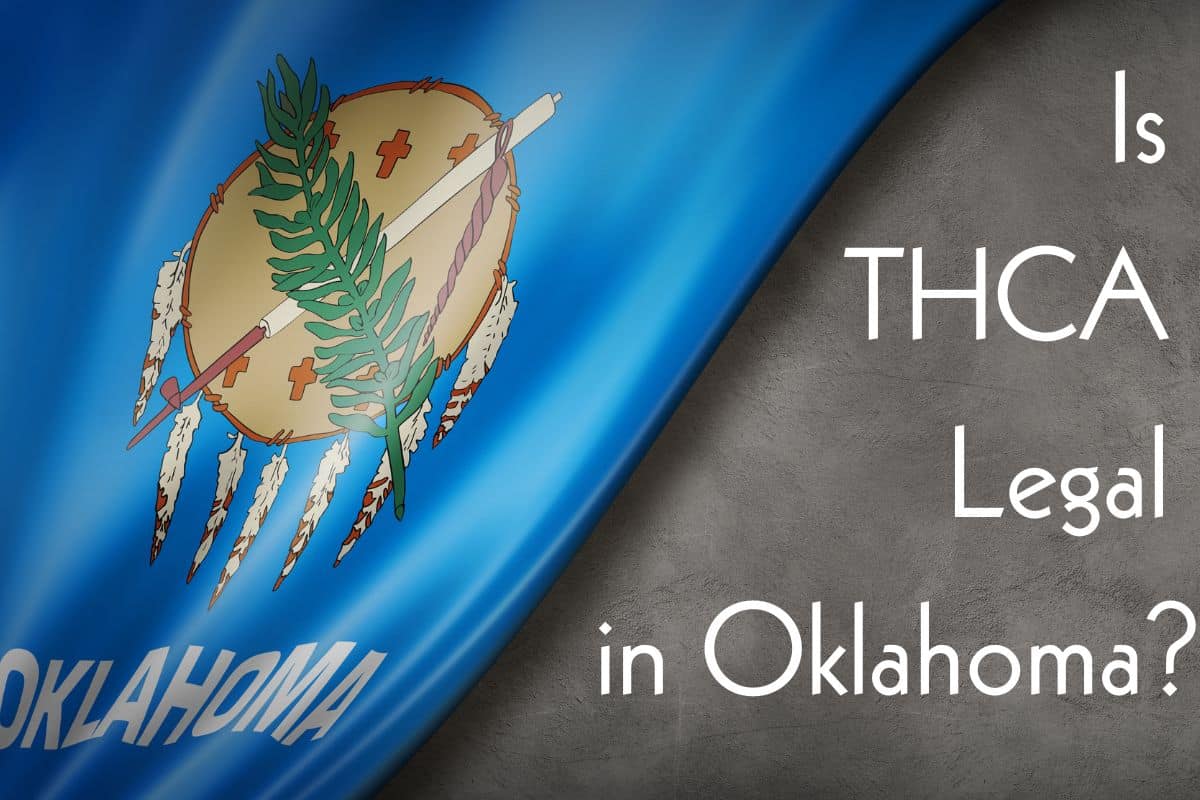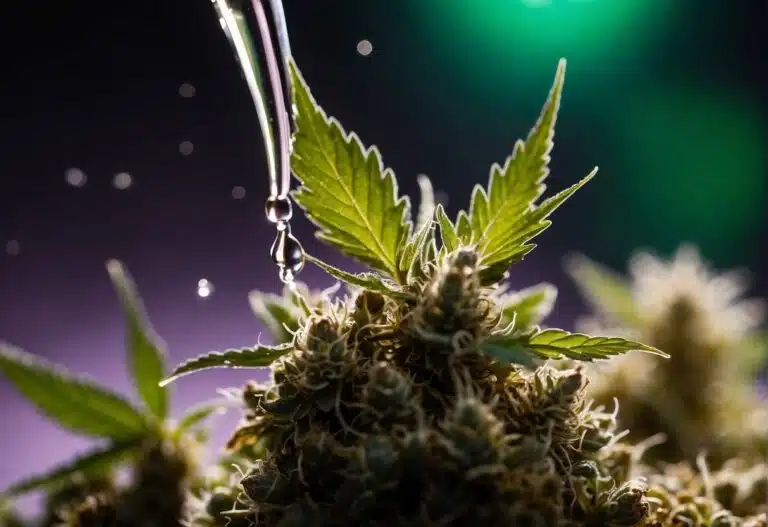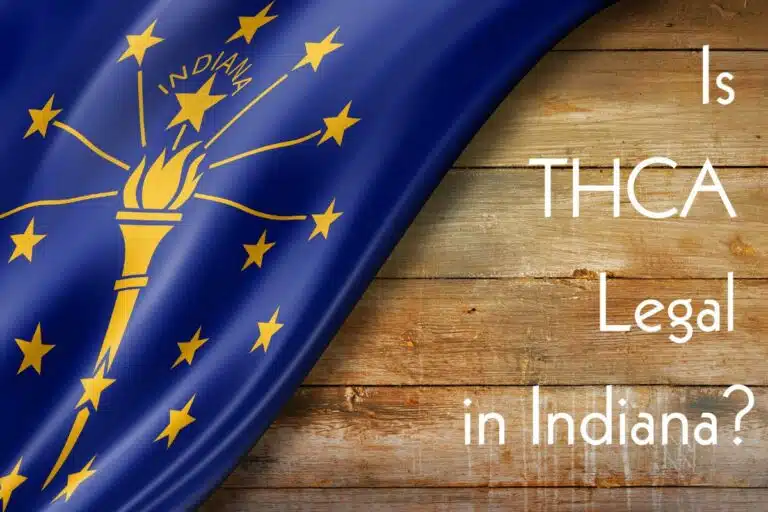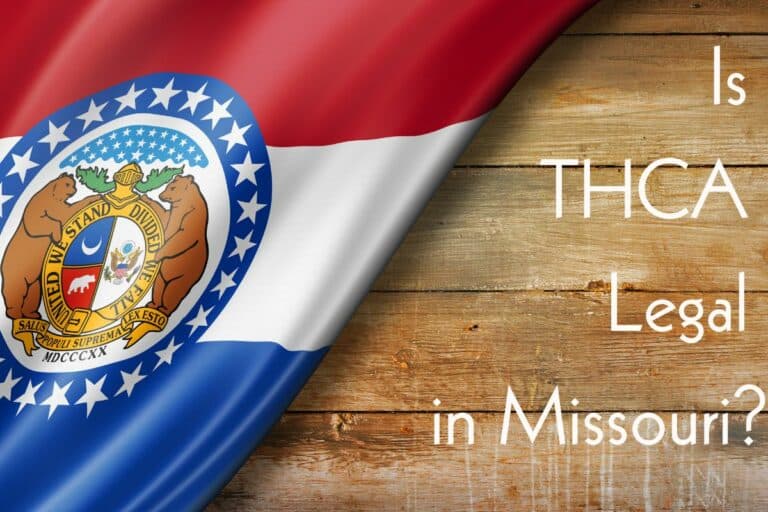Is THCa Legal in Oklahoma: Understanding State Regulations
Exploring if you can legally have THCa in Oklahoma reveals a colorful patchwork of both U.S. regulations and Oklahoma’s own set of rules. THCa morphs into THC, the component in cannabis that gives that buzz. However, THCa on its own doesn’t fog up your brain. Despite the federal frown on THC, Oklahoma dances to a different tune, embracing things like CBD and THCa, especially after greeting medical marijuana with open arms in 2018.
Oklahoma permits the sale and use of CBD products, and this leniency has raised questions about the legal status of other cannabis compounds like THCa. Since THCa is not psychoactive, it does not produce the “high” associated with THC, and this characteristic could affect its legal classification. It’s important for patients, consumers, and businesses to understand how THCa is regulated within the state to ensure compliance with all pertinent laws.
Understanding the legal landscape of cannabis compounds in Oklahoma requires a thorough examination of the relevant laws and regulations. Differentiating between the various cannabinoids and their legal implications is crucial for making informed decisions about their use and distribution in Oklahoma.
Overview of THCa

Tetrahydrocannabinolic acid (THCa) is a non-psychoactive cannabinoid found in the raw form of the cannabis plant. Before it is heated or aged, which is a process called decarboxylation, THCa is the prevalent form of THC within the plant. Upon decarboxylation, THCa converts to delta-9-tetrahydrocannabinol (THC), the compound known for its psychoactive effects.
Properties of THCa:
- Non-Psychoactive: It won’t produce a “high” effect.
- Biosynthetic Precursor: Conversion into THC occurs when exposed to heat.
- Occurs Naturally: Found in raw cannabis.
Cannabinoids like THCa have been scrutinized for their therapeutic potential. Research into THCa’s properties and effects is ongoing, but it is understood to possess its own unique properties separate from THC.
In the context of legality, cannabis and its derivatives’ legal status can vary widely. In Oklahoma, specific regulations govern the use of cannabis and its compounds. Your inquiry regarding the legal status of THCa should be cross-referenced with the most recent state and federal laws, as they are subject to change.
The cultivation and possession of cannabis and related products in Oklahoma are legal for medical purposes, with state-issued licenses. However, for the legal nuances concerning THCa and compliance with Oklahoma law, consult official state resources or legal counsel.
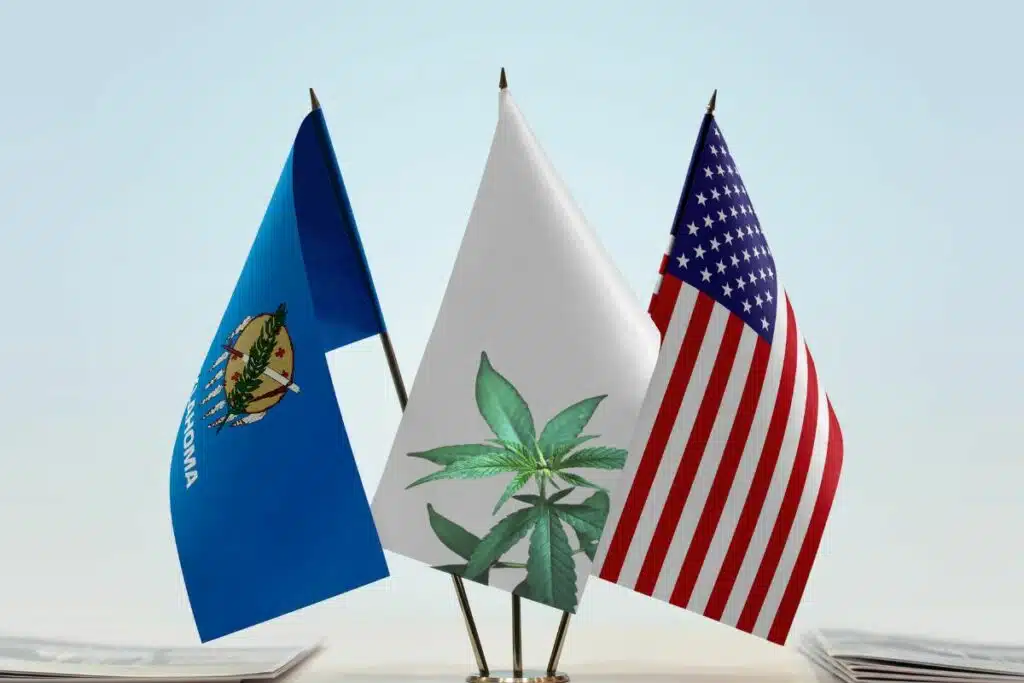
Legality of Cannabis and Its Derivatives
In examining the nuances of cannabis-related legislation, it is pivotal for you to understand how federal frameworks and state-specific laws intersect, especially regarding compounds such as THCa.
Federal Law and the 2018 Farm Bill
The 2018 Farm Bill represents a significant shift in federal law by legalizing hemp, defined as cannabis with a delta-9 THC concentration of 0.3% or less on a dry weight basis. Hemp-derived products that comply with this threshold are not considered controlled substances. However, delta-9 THC, above this limit, remains classified by federal law as a Schedule I controlled substance. This includes THCa, which is a non-psychoactive precursor to THC found in the cannabis plant.
State-Specific Regulations
When it comes to state laws, the legality of THCa in Oklahoma is determined by the state’s regulatory landscape. Oklahoma has embraced a permissive stance on medical cannabis, following State Question 788 in 2018, which legalized the licensed use, sale, and cultivation of marijuana for medicinal purposes. Recreational use remains illegal, but as long as the hemp-derived products, including THCa, adhere to the aforementioned THC threshold, they are legal for sale within the state. Always ensure that any cannabis product, including those containing THCa, complies with Oklahoma’s regulations to guarantee its legality for use or distribution.
THCa Specifics in Oklahoma
Oklahoma’s stance on cannabinoids, particularly THCa, is informed by state-specific regulations regarding both medical and recreational cannabis. Understanding the legal framework ensures compliance and awareness of permissible activities related to THCa.
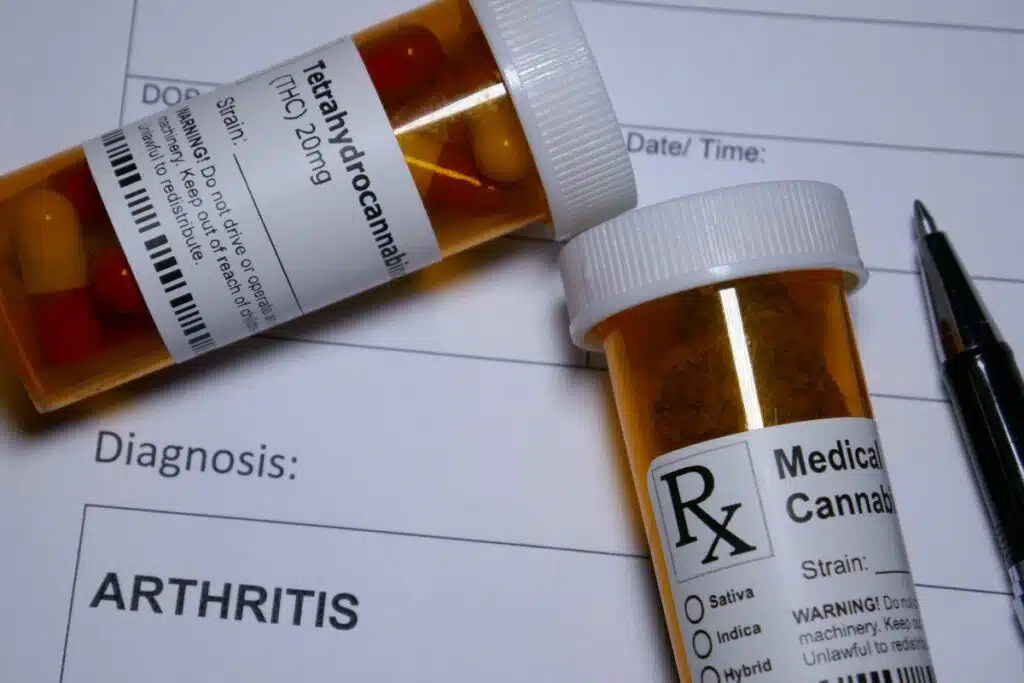
Medical and Recreational Use Regulations
Your access to THCa for medical use in Oklahoma is sanctioned through the state’s medical marijuana program. If you are a patient with a valid medical marijuana license, you may legally purchase and possess marijuana-derived products, including those containing THCa. However, recreational use of marijuana and its derivatives, like THCa, remains illegal in the state. Any possession without a medical license is subject to the state’s drug laws.
Legal Status of Hemp-Derived Cannabinoids
Due to the 2018 Farm Bill, hemp-derived cannabinoids, including THCa, are legal in Oklahoma as long as they contain no more than 0.3% delta-9 THC on a dry weight basis. This includes products like CBD and delta-8 formulations, which are not classified under the Controlled Substances Act, and by extension, THCa sourced from legal hemp may also fit this criterion.
Purchase and Possession Limits
In Oklahoma, if you are enrolled in the medical marijuana program, you can purchase and possess up to three ounces of marijuana on your person. This limit includes marijuana-derived THCa products. For reference, in terms of concentrate forms, your limit is one ounce. You are also allowed to have eight ounces of marijuana at your residence. Remember, these amounts reflect total cannabinoid content, so THC and THCa combined must not exceed these limits.
Available Forms of THCa and Usage
THCa, a non-psychoactive cannabinoid found in cannabis, is legal in Oklahoma in various consumable, smokable, and extractable forms. Its transformation into THC through decarboxylation differentiates its legality and usage.
Consumable Products
You’ll find THCa predominantly in edibles and gummies, often appreciated for their ease of use and consistent dosing. In Oklahoma, these products are specifically designed to deliver the benefits of THCa without the psychoactive effects associated with THC, as THCa is not intoxicating in its raw form. Tinctures are another popular option, providing a discreet and precise manner for THCa consumption, often with a dropper for dosage control.
Smokable and Vapable Options
If you prefer inhalation, THCa flower and other smokable forms of cannabis provide a way to consume THCa. Although smoking inherently involves some level of decarboxylation, thereby converting THCa to Delta-9 THC, there remains a variable quantity of THCa that does not convert, maintaining some legal smokable options. Additionally, vaping is a method that has gained traction due to its ability to heat cannabis at a controlled temperature, potentially preserving more THCa while minimizing the conversion to THC.
Extraction and Preparation Methods
When you’re looking at extraction methods, you’ll find that they play a significant role in how THCa is isolated and prepared for use. Traditional extraction techniques involve the careful separation of cannabinoids from plant material, which can be used in cooking or to create concentrated forms of THCa. For the culinary-inclined, infusing THCa into your cooking involves non-heating methods, as heat would convert THCa to psychoactive tetrahydrocannabinol (THC). This enables you to enjoy the potential therapeutic effects of THCa without experiencing intoxication.

Identifying and Understanding THCa Products
When considering THCa (tetrahydrocannabinolic acid) products, it’s essential to understand the labeling and THC content as well as how to differentiate THCa from other cannabinoids. This knowledge ensures compliance with local regulations and helps in making informed choices about usage.
Labelling and THC Content
Products containing THCa must clearly indicate this cannabinoid on their label, so you understand what you are purchasing. The THC content, often listed as “Total THC,” accounts for the potential of THCa to convert to Delta-9 THC upon decarboxylation—that is, when heated. You can expect labels to specify not only the THC content but often the presence of other cannabinoids such as CBD (cannabidiol), Delta-8, and Delta-10 THC. It’s imperative that the label distinguishes between the acidic (THCa) and neutral (THC) forms of this cannabinoid, as this impacts both the product’s legal status and effects.
Example Label:
Cannabinoid Profile:
– THCa: 60%
– Delta-9 THC: <0.3%
– CBD: 15%
– Delta-8 THC: 5%
– Delta-10 THC: 2%
Total THC: *Calculated Value*

Differentiating THCa from Other Cannabinoids
THCa is just one of many cannabinoids found in cannabis. Unlike Delta-9 THC, the component known for psychoactive effects, THCa does not intoxicate in its raw form. However, it can convert into Delta-9 THC through decarboxylation. CBD, another non-psychoactive component, is also commonly present and should not be confused with THCa. The product should be analyzed for the presence of these compounds to ensure that you receive the intended effects and remain within legal boundaries. To this end, professional lab testing might quantify THCa separately from Delta-8, Delta-9, and CBD to provide clear information on the product’s compound spectrum.
Conclusion and Future Considerations
When navigating the legal landscape of THCa in Oklahoma, you should be aware that the regulations governing cannabis and its derivatives are still in flux. Under current state laws, THCa falls within a gray area, as it is a non-psychoactive precursor to THC found in raw cannabis plants.
State legislation must be considered alongside federal laws, which continue to classify THC as a Schedule I controlled substance. This classification does not directly address THCa; however, any product containing THC above 0.3% is deemed illegal at the federal level. Therefore, understanding the precise chemical composition of cannabis products you possess or use in Oklahoma is crucial.
Despite state-level legalization efforts, federal regulations retain the authority to supersede. Your vigilance in staying informed about legal and regulatory changes is essential, particularly as the nuances of cannabis laws are addressed through legislation or court rulings.
Here are a few key points to note:
- Ingesting THCa in its non-decarboxylated form is not likely to produce intoxicating effects.
- Potential legal risks could arise if THCa is converted to THC, surpassing the legal threshold.
- Ongoing modifications to state laws will determine the extent of THCa’s legality in Oklahoma.
Future considerations for you may involve keeping an eye on legislative sessions and public policy debates. As research into THCa and its applications continue to grow, so may the efforts to create clear, safe, and fair guidelines for its use. Your understanding of these dynamics will help navigate the evolving legal framework surrounding cannabis derivatives.
Frequently Asked Questions
Navigating the legality of THCa in Oklahoma can be complex. These FAQs aim to clarify the current status and understanding of THCa in Oklahoma.
What is the current legal status of THCa in the state of Oklahoma?
THCa is not listed as a controlled substance in Oklahoma, which suggests that it is legal. However, regulations are subject to change, and legal interpretations may vary. It’s important to stay informed about the most current laws.
Can one legally ship THCa to Oklahoma?
Shipping THCa to Oklahoma falls into a legal gray area. Since THCa itself is not psychoactive and is not individually classified as illegal, shipping it is not necessarily prohibited. Nevertheless, ensure you comply with both federal and Oklahoma state laws when considering shipping such substances.
How does Oklahoma’s stance on THCa compare to its legality in other states?
Oklahoma has relatively permissive medical marijuana laws, but the legal status of THCa may not be the same in other states. Some states have stricter regulations, while others may align with Oklahoma’s approach.
What are the potential intoxicating effects of consuming THCa?
THCa itself is not psychoactive, meaning it does not produce intoxicating effects. It must be converted to THC, the psychoactive component of cannabis, to experience such effects.
Does THCa convert to delta-9 THC during consumption?
Yes, THCa can convert to delta-9 THC when exposed to heat through a process called decarboxylation. This is the chemical reaction that occurs during smoking, vaping, or cooking cannabis.
Between THCa and delta-8 THC, which compound is known to be more potent?
Delta-9 THC is known to be more potent in terms of psychoactive effects compared to THCa. THCa must convert into delta-9 THC to become intoxicating, and delta-8 THC is generally considered less potent than delta-9 THC.

